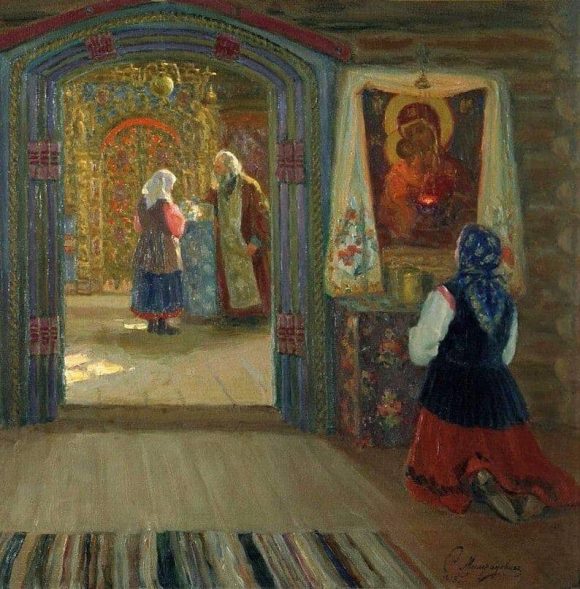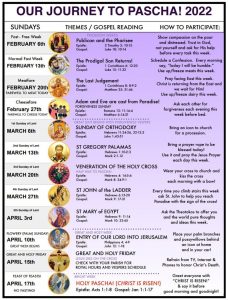Lent begins forty days before Flowery (Palm) Sunday, on the Monday after Forgiveness Sunday (Cheese-Fare Sunday), and lasts until the Friday preceding Palm Sunday.
Holy Week is a special Fast in honor of our Lord’s Passion, and lasts from the evening of Palm Sunday until Holy Saturday inclusive.
Fasting is voluntary. It is an imposed, self-discipline, and expected of all who are physically able. To help us, the Church sets out both the maximal and minimal rules for fasting. Faithful Christians need to take into account their individual circumstances, – health, age, physically, demanding jobs, etc., when making decisions around fasting. With the exception of nursing and expectant mothers, small children, the poor, the mentally or physically, ill or aged, all are required to keep the minimal fast
Penitential fasting practices, repentance and abstinence that aim to expiate the sins committed and to achieve a greater level of perfection for personal sanctity are the oldest tradition in the Ukrainian Greek Catholic Church. (Canon 115 §1 of the Particular Law of the UGCC).
Canon 115 §2 of the Particular Law of the Ukrainian Greek Catholic Church imposes on all faithful the following obligations during the Great Fast:
A strict fast is observed on the first day of the Great Fast and Passion Friday, i.e. abstention from meat and dairy products and eggs as well as foods that contain these ingredients.
Abstention from all meat and foods containing meat is to be observed during the first week of the Great Fast and all days of Passion Week.
During the Great Fast, abstention from the consumption of meat and meat products is to be observed on all Mondays, encouraged on Wednesdays and Fridays. All other foods are permitted on Tuesdays and Thursdays.
6.3 of the same canon enumerates those who are dispensed from any obligation to fast:
children up to 14 years of age; persons over 60 years of age; the gravely ill; pregnant women; postpartum mothers and those who are breastfeeding; those who are travelling (if the travel time exceeds eight hours); those engaged in heavy labour; those who eat from the table of others; the poor who live from charity.

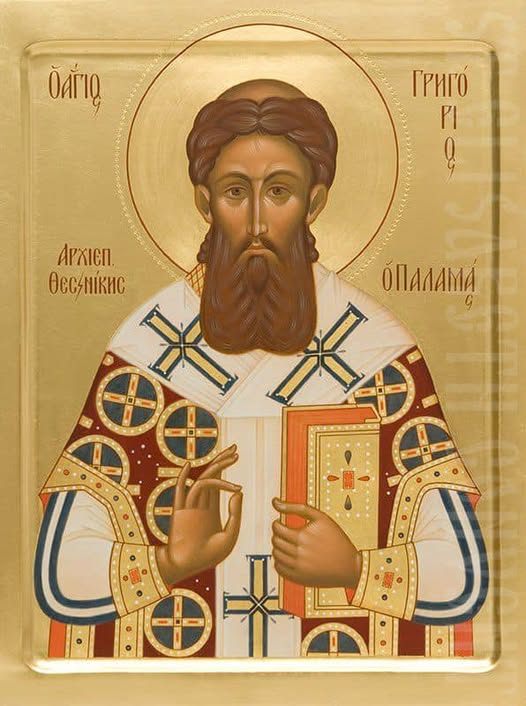
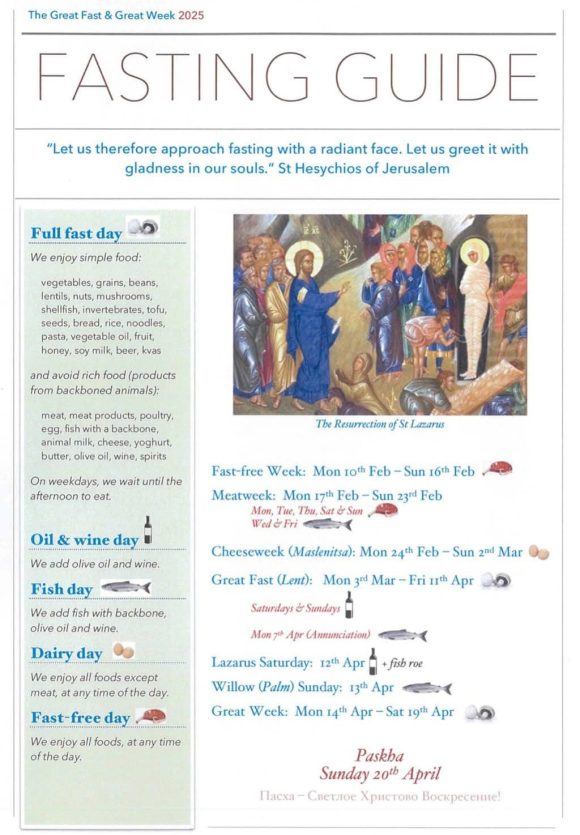
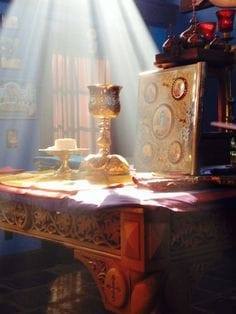
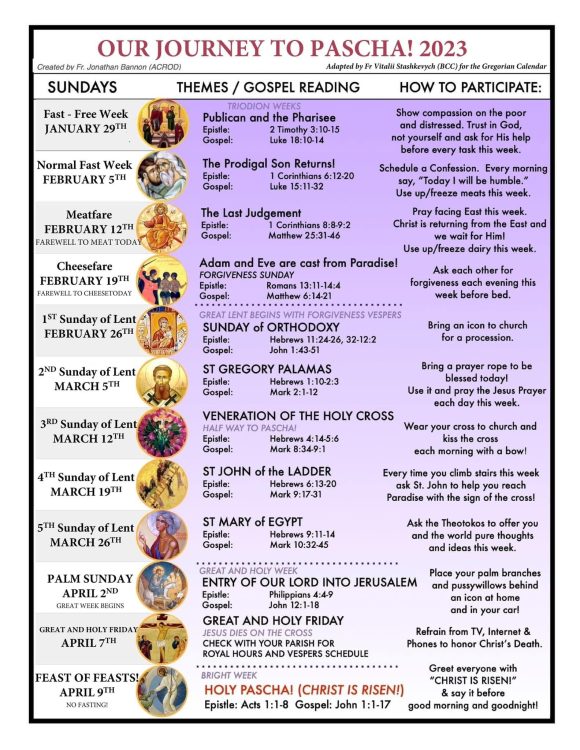
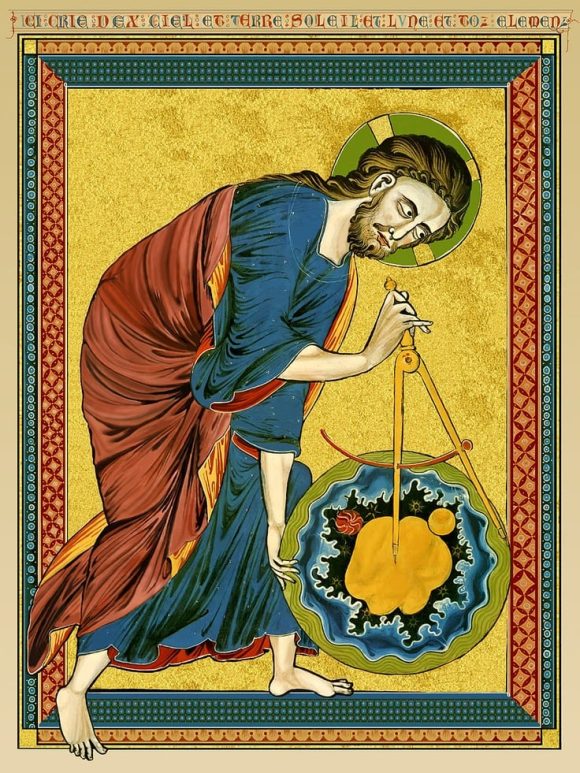
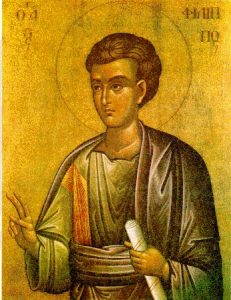 The original title of this Sunday was the Sunday of the Prophets.
The original title of this Sunday was the Sunday of the Prophets.